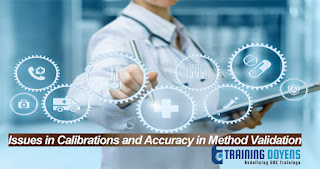Live Webinar on Issues in Calibrations and Accuracy in Method Validation
OVERVIEW
One
of the most important concepts and criteria of Good Laboratory Practices is
accuracy, how well does a methodology stand in terms of quantifying when
compared to an expected value? There are various approaches in calibration and
in the use of standards for comparisons. This webinar will cover validation of
calibrations and the strengths, weaknesses, and appropriateness of the
different types of standards. Without accuracy, a result is not acceptable.
There are many issues that have an effect on accuracy and there are many
approaches to deal with them. The importance of response, matrix effects,
selectivity of identification, and other issues will be covered.
WHY
SHOULD YOU ATTEND
Accuracy
is one of the most fundamental assessments in regulated analyses and
calibration is the means to determine it. The quality, and therefore the
acceptability, of accuracy is a large part of an auditor’s review of a
methodology. This means that the connection of how amounts are determined to
known, accepted, and comparable values is a key. This is often difficult when
dealing with new compounds assessed by new methods. Approaches to increase the
quality of measurement will be covered.
AREAS
COVERED
- How
accuracy is determined in analytical method development and validation
- What
are the various types of standards and what are their strengths and
weaknesses
- Analytical
method validation and the importance of traceability
- Calibration
curves – what are the important criteria?
- Linearity
versus nonlinearity, slope, intercept and what they mean
- Matrix
effects and how to deal with them
- Using
calibration data to monitor performance
LEARNING
OBJECTIVES
- Comparison
by using standards – the types of standards
- Traceability
and documentation in analytical method development and validation
- Calibration
curves – checks for linearity, when non-linearity happens
- Spikes,
surrogates, and standard addition
- Monitoring
calibrations – slope and intercept
WHO
WILL BENEFIT
- Lab
Chemists
- Lab
Managers
- Lab
Technicians
- Lab
Analysts
- Industries
into Compliance Methodology (Biotech, Pharma)
- Companies
into Environmental Compliance (EPA)
For more detail please click on this below
link:
Email: support@trainingdoyens.com
Toll Free: +1-888-300-8494
Tel: +1-720-996-1616
Fax: +1-888-909-1882




Comments
Post a Comment